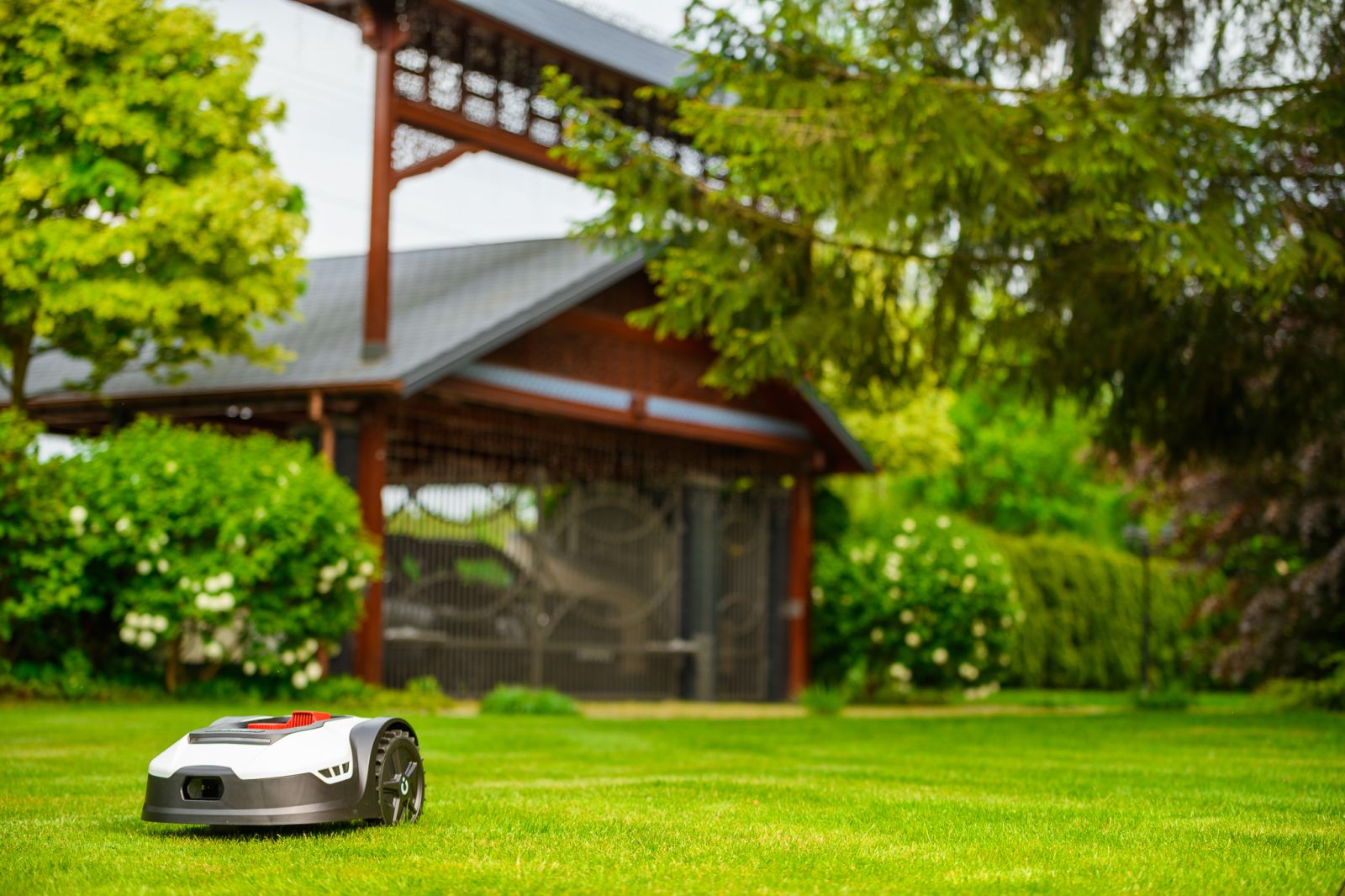Automatic mowers vs. ecology: How is technology changing the face of sustainable garden care?

In recent years, automatic mowers have become increasingly popular, changing the approach to garden care while offering the potential for more sustainable gardening practices. These smart devices can affect the environment in a variety of ways, both positively and negatively.
1. Reduction of greenhouse gas emissions
Traditional petrol mowers are a significant source of CO2 emissions and other harmful gases. Automatic mowers, powered by batteries, significantly reduce this problem. Their electric motors are more efficient and emit less pollution. In addition, some models are equipped with solar panels, further reducing their carbon footprint and making them environmentally friendly.
Automatic lawn mowers, thanks to their battery power, are an environmentally friendly alternative to traditional internal combustion mowers, which are a significant source of CO2 emissions and other harmful gases. The electric motors of these modern devices not only reduce direct emissions, but also generate less noise, which contributes to less acoustic pollution.
Many models are also equipped with intelligent power management systems that optimize battery consumption and extend the life of the device. The ability to charge the mowers from renewable energy sources, such as solar panels, further emphasizes their eco-friendly nature.
2. Minimize disruption to the ecosystem
Automatic mowers operate at a lower intensity and are often programmed to operate at times when they minimize disturbance to local fauna. By mowing the grass regularly, but not too deeply, they allow for better survival of a variety of insect species and microorganisms, which is key to maintaining biodiversity.
Automatic mowers are designed to operate with minimal disruption to the environment. Regular but gentle trimming of the grass prevents excessive destruction of the natural habitat of insects such as bees and butterflies, which play a key role in the pollination process.
In addition, the lower noise levels emitted by these devices make them less invasive to wildlife, which is important in gardens close to woodlands or other sensitive ecosystems.
3. Saving water resources
Automatic mowers can contribute to water conservation. Regular but not too deep mowing promotes the maintenance of a healthy length of grass, which better retains moisture. As a result, the garden requires less frequent watering, which is especially important in regions affected by water shortages.
Mowing grass at the right height is key to keeping it healthy and vibrant. Automatic mowers, with their precise cutting length settings, help keep grass in optimum condition, which translates into less need for water.
Healthier grass has a better-developed root system that more efficiently absorbs water and nutrients, which in turn reduces soil erosion and increases its ability to store water.
4. Reducing the use of chemicals
By keeping the grass healthy and well-cut, automatic mowers reduce the need for herbicides and other chemicals. Fewer weeds and pests in a well-maintained lawn means less need for chemical interventions, which translates into environmental benefits.
Mowing the grass at the right height not only promotes healthy growth, but also naturally inhibits the growth of weeds, reducing the need for herbicides. Regular mowing by automatic mowers also prevents the spread of fungal diseases, which often require intervention with fungicides.
Fewer weeds and disease resistance make it possible to reduce the use of chemicals, which is good for both the environment and the health of people in the garden.
5. Use of waste as compost
Some models of automatic mowers are equipped with mulching systems that shred the grass clippings into a fine mulch, leaving it on the lawn. This mulch naturally decomposes, enriching the soil with nutrients and improving its structure, eliminating the need for additional fertilization.
Challenges and limitations
Despite its many advantages, automatic mowers also present some challenges. Their performance may be limited for larger and more diverse sites. In addition, the initial cost of purchase and installation may be a barrier for some users.
Summary
Automatic high grass mowers offer a promising alternative to traditional lawn care methods, fostering sustainable practices. By reducing emissions, minimizing disturbance to wildlife, saving water, reducing the use of chemicals, and better managing waste, these devices can make a significant contribution to environmental protection. Still, it is important for users to be aware of both the benefits and potential limitations of their use.
Recommended

CEDRUS S3 AUTOMATIC MOW MOWING ROBOT C-MOW 300m2 - OFFICIAL DISTRIBUTOR - AUTHORIZED DEALER CEDRUS

CEDRUS L20+ AUTOMATIC MOWING ROBOT FOR 2000m2 C-MOW - OFFICIAL DISTRIBUTOR - AUTHORIZED DEALER CEDRUS

CEDRUS M5 AUTOMATIC MOW MOWING ROBOT 500m2 - OFFICIAL DISTRIBUTOR - AUTHORIZED DEALER CEDRUS

CEDRUS M10 AUTOMATIC MOW MOWING ROBOT 1000m2 - OFFICIAL DISTRIBUTOR - AUTHORIZED DEALER CEDRUS

CEDRUS L16 AUTOMATIC MOWING ROBOT 1600m2 C-MOW - OFFICIAL DISTRIBUTOR - AUTHORIZED DEALER CEDRUS

CEDRUS L20 AUTOMATIC MOWING ROBOT FOR 2000m2 C-MOW - OFFICIAL DISTRIBUTOR - AUTHORIZED DEALER CEDRUS

CEDRUS M6+ AUTOMATIC MOW MOWING ROBOT 600m2 - OFFICIAL DISTRIBUTOR - AUTHORIZED DEALER CEDRUS

